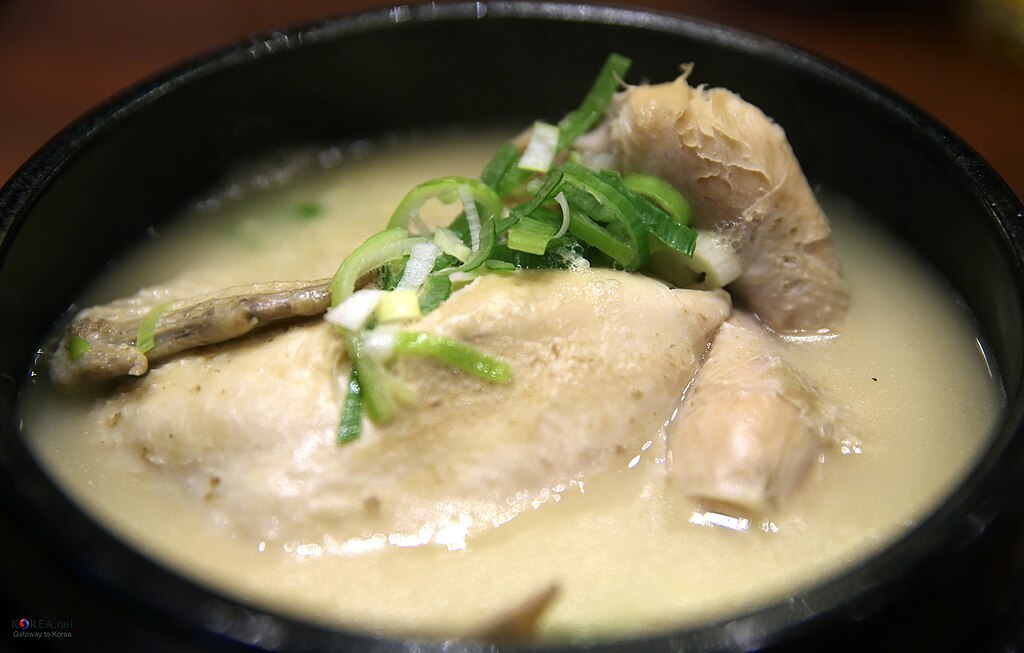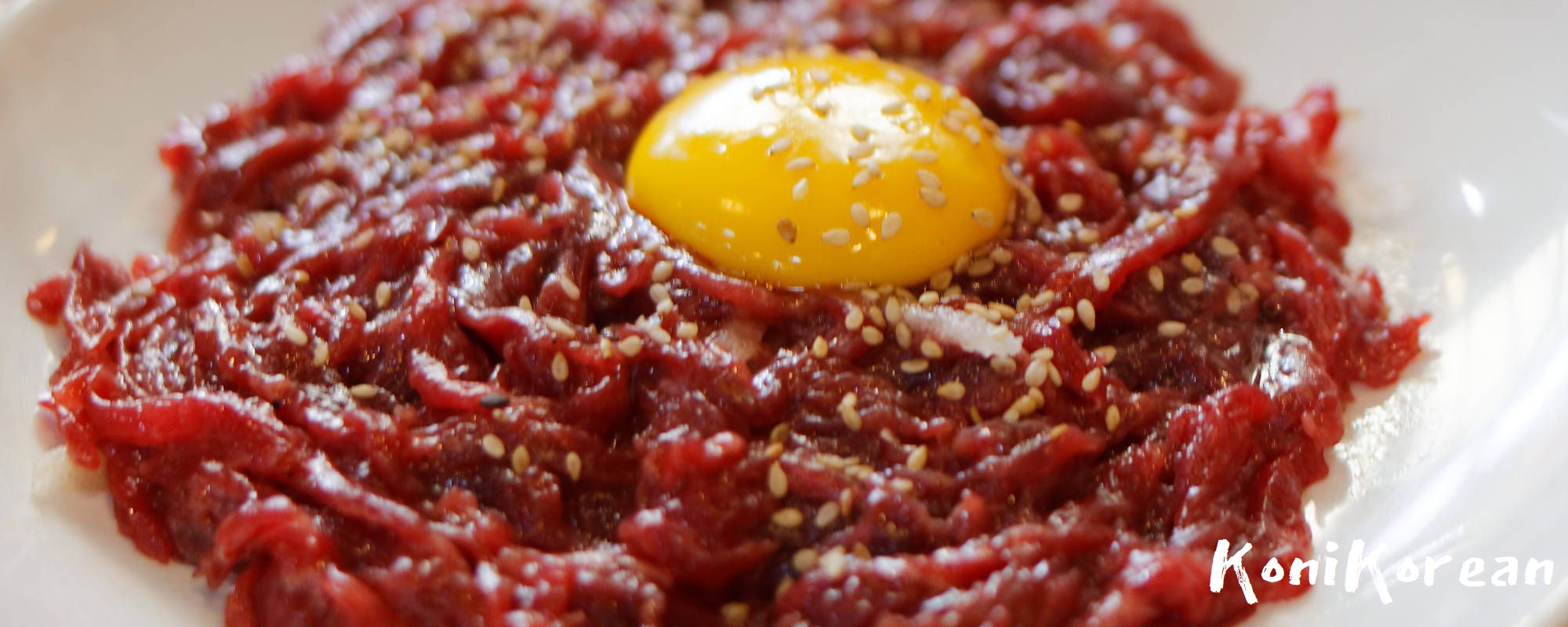Beat the Heat: 7 Lesser-Known Korean Summer Foods You Need to Try
When the scorching Korean summer hits and you start losing a gallon of sweat every day, you can turn to the traditional knowledge hidden in regional Korean cuisine to keep you cool through the hottest days of the year. Get ready to discover how Korea’s regional food traditions turn summer heat into deliciousness through the fascinating philosophy of iyeolchiyeol ( 이열치열) - literally “fighting fire with fire.”

Ministry of Culture, Sports and Tourism Korean Culture and Information Service Korea.net(www.korea.net) JEON HAN
While you might know naengmyeon, bingsu, or samgyetang, we’re diving deep into Korea’s lesser-known regional summer specialties that showcase the incredible diversity of Korean cuisine. From Jeolla Province’s soul-warming kongguksu to the refreshing simplicity of oi naengguk, these dishes represent centuries of Korean wisdom about staying healthy and energized during the hottest months of the year.
Understanding Jangma: Korea's Monsoon Season and Its Cultural Significance
When the first heavy raindrops begin to fall across the Korean Peninsula in late June, they signal more than just a change in weather. The arrival of jangma (장마), Korea’s monsoon season, represents a profound cultural phenomenon that has shaped Korean civilization for millennia. Far beyond its meteorological impact, jangma influences everything from artistic expression and culinary traditions to social behaviors and spiritual practices, making it an essential part of Korean cultural identity.
KPop Demon Hunters Movie OST Songs for Norebang
KPop Demon Hunters (케이팝 데몬 헌터스) original soundtrack songs from the 2025 movie are listed below. As this is a recent release, these songs may be unavailable at your local 노래방 if the machines have not been updated with the latest tracks. To determine the column to use for your karaoke session, look at the manufacturer of the karaoke machine either on the machine itself, on the remote, or on the interface. You should see two letters, either TJ or KY; use the corresponding column in the table below to add the song to the queue and start singing! See more detailed instructions on Korean norebang machines.

Note: As this is a 2025 release, karaoke machine numbers are not yet available. Check with your local 노래방 for availability.
Food Guide to Gwangjang Market (광장시장)
광장시장 (Gwangjang market) is a prime location in Seoul for eating various Korean foods. Do not expect to find strict hygiene standards or to seat on a nice chair; you will, however, be surprised by the food offerings in the market. From 육회 (shredded raw beef) to 빈대떡 (mungbean pancake), 광장시장 does not disappoint. This post lists the most popular foods to eat in 광장시장 Gwangjang market, as well as some tips to have the best experience while navigating the numerous stalls and restaurants.
Top 3 Emblematic Foods of 광장시장
육회 (肉膾) Yukhoe or Shredded Raw Meat

육회 is one of the three emblematic foods of 광장시장. 육회, as sold in this market, is shredded raw beef served with an egg yolk on top of Korean pear. The dish comes with salted sesame oil; dip the meat in it to enhance the flavor even more. Because 육회 has to be extremely fresh and is easily contaminated if improperly handled, prefer eating it at the restaurants of the market rather than the food stalls in the middle of the alleys. At least one restaurant, 부촌육회, is in the Seoul Michelin guide; I, however, prefer 창신육회 for the more authentic experience (poor seating but cheaper and almost as good). Most restaurants in 광장시장 also offer 육사시미 (beef sashimi) and 육회낙지탕탕이 (live octopus 낙지탕탕이 mixed with shredded raw beef, see 아재입맛 for a picture and of 낙지탕탕이), but I advise against ordering these items as they are pricier than 육회, unless you are confident enough and trust the restaurant. Pair 육회 with 막걸리.
Ahjussi Taste: Best Traditional Korean Foods (아저씨 입맛)
Some of the best Korean foods are also the oldest. People who love traditional foods that usually have a strong flavor or repulsing appearance are said to have an 아저씨/아재 입맛, or ahjussi taste. Learn about some of these traditional foods below.
곱창 Gopchang or Grilled Small Intestines

Small intestines of a cow or a pig. The word 곱창 by itself usually refers to grilled small intestines, also called 곱창구이. It can also be eaten in a hot pot (곱창전골) or as a sausage (cf. 순대). Prefer 양념곱창 (marinated 곱창) over regular 곱창 if you doubt the quality of the restaurant. 곱창 tastes best with soju.
Seoul Traditional Tour
Immerse yourself in Korean history and culture with this tour of Seoul’s most beautiful traditional sites. Perfect for a full day of exploration!
Seoul Modern Experience
Discover the contemporary side of Seoul through shopping, innovative design, and vibrant markets. A perfect afternoon and evening itinerary!
Seoul Market Morning
Experience the vibrant market culture of Seoul in a half-day tour. Perfect for food lovers and souvenir hunters!
Namdaemun Sijang
Seoul’s oldest and largest traditional market, established in 1414 during the Joseon Dynasty. With over 10,000 stalls and shops spread across numerous alleyways, it offers everything from textiles and kitchenware to street food and souvenirs. Famous for its galchi jorim (braised hairtail fish) and affordable clothing. A vibrant showcase of Korean commerce and culture.